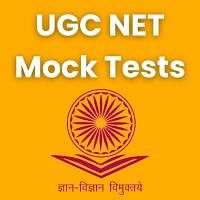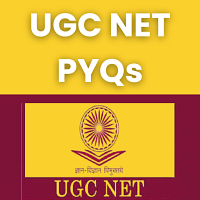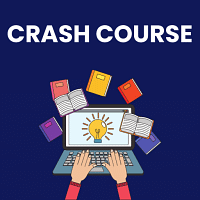UGC NET Exam > UGC NET Questions > David Runciman, in his book "How Democra...
Start Learning for Free
David Runciman, in his book "How Democracy Ends," puts forth a distinctive claim about the future of democracy. Which of the following best describes his argument?
- a)Democracy will end through violent revolutions led by the lower classes.
- b)Democracy is being slowly replaced by technocratic governance.
- c)Democracy will collapse due to external threats such as wars or invasions.
- d)Democracy ends not with a bang but with a whimper, specifically with democratic measures themselves leading to its downfall.
Correct answer is option 'D'. Can you explain this answer?
| FREE This question is part of | Download PDF Attempt this Test |
Most Upvoted Answer
David Runciman, in his book "How Democracy Ends," puts forth...
Understanding Runciman's Argument
David Runciman’s book "How Democracy Ends" presents a thought-provoking analysis of the future trajectory of democratic governance. His distinctive claim is encapsulated in the idea that democracy will not collapse through violent upheaval or external threats, but rather through its own mechanisms.
Key Points of Runciman's Argument:
- Democracy's Self-Destruction: Runciman argues that democratic systems can undermine themselves through the very principles that were meant to uphold them. This self-destruction happens gradually, leading to disenchantment among the populace.
- Voter Disillusionment: As citizens become disillusioned with their political choices and the efficacy of their votes, they may opt out of participation. This apathy can weaken the foundations of democracy, leading to a decline in civic engagement.
- Rise of Authoritarianism: In the absence of strong democratic engagement, there is a risk that authoritarian figures or regimes could rise, appealing to voters frustrated with the status quo. This shift can happen without overt violence, marking a subtle transition rather than a dramatic collapse.
- Technocratic Solutions: Runciman also highlights the trend towards technocratic governance, where decisions are made by experts rather than through democratic deliberation. This shift can further alienate citizens from the political process and erode democratic norms.
Conclusion:
In summary, Runciman posits that the end of democracy might not be a cataclysmic event but a gradual decline enabled by democratic systems themselves. This nuanced perspective challenges traditional notions of how democracies fail, emphasizing the importance of active citizen engagement to preserve democratic ideals.
David Runciman’s book "How Democracy Ends" presents a thought-provoking analysis of the future trajectory of democratic governance. His distinctive claim is encapsulated in the idea that democracy will not collapse through violent upheaval or external threats, but rather through its own mechanisms.
Key Points of Runciman's Argument:
- Democracy's Self-Destruction: Runciman argues that democratic systems can undermine themselves through the very principles that were meant to uphold them. This self-destruction happens gradually, leading to disenchantment among the populace.
- Voter Disillusionment: As citizens become disillusioned with their political choices and the efficacy of their votes, they may opt out of participation. This apathy can weaken the foundations of democracy, leading to a decline in civic engagement.
- Rise of Authoritarianism: In the absence of strong democratic engagement, there is a risk that authoritarian figures or regimes could rise, appealing to voters frustrated with the status quo. This shift can happen without overt violence, marking a subtle transition rather than a dramatic collapse.
- Technocratic Solutions: Runciman also highlights the trend towards technocratic governance, where decisions are made by experts rather than through democratic deliberation. This shift can further alienate citizens from the political process and erode democratic norms.
Conclusion:
In summary, Runciman posits that the end of democracy might not be a cataclysmic event but a gradual decline enabled by democratic systems themselves. This nuanced perspective challenges traditional notions of how democracies fail, emphasizing the importance of active citizen engagement to preserve democratic ideals.
Free Test
FREE
| Start Free Test |
Community Answer
David Runciman, in his book "How Democracy Ends," puts forth...
- David Runciman is a British political theorist renowned for his elaborate work on various models of democracy.
- In his book, "How Democracy Ends," Runciman contends that modern democracies, particularly those in the West, are likely to end not through dramatic events such as revolutions, coups, or invasions, but rather with a whimper—in other words, through their own internal processes, subversions, and adaptations.
- He argues that the challenges facing our present democracies, such as bureaucratic stalemate, stagnation, and lack of public faith, are internal to democracy itself but are often overlooked.
- These become particularly problematic when we have to deal with unforeseen circumstances—the kind of radical, external shocks that require decisive and rapid action.
- Furthermore, instead of outright replacement of democracies with overtly non-democratic regimes, Runciman suggests there's a creeping erosion taking place, often with democratic measures themselves inadvertently leading to their own undoing.
- Therefore, the answer would be D) Democracy ends not with a bang but with a whimper, specifically with democratic measures themselves leading to its downfall.
Attention UGC NET Students!
To make sure you are not studying endlessly, EduRev has designed UGC NET study material, with Structured Courses, Videos, & Test Series. Plus get personalized analysis, doubt solving and improvement plans to achieve a great score in UGC NET.

|
Explore Courses for UGC NET exam
|

|
Similar UGC NET Doubts
David Runciman, in his book "How Democracy Ends," puts forth a distinctive claim about the future of democracy. Which of the following best describes his argument?a)Democracy will end through violent revolutions led by the lower classes.b)Democracy is being slowly replaced by technocratic governance.c)Democracy will collapse due to external threats such as wars or invasions.d)Democracy ends not with a bang but with a whimper, specifically with democratic measures themselves leading to its downfall.Correct answer is option 'D'. Can you explain this answer?
Question Description
David Runciman, in his book "How Democracy Ends," puts forth a distinctive claim about the future of democracy. Which of the following best describes his argument?a)Democracy will end through violent revolutions led by the lower classes.b)Democracy is being slowly replaced by technocratic governance.c)Democracy will collapse due to external threats such as wars or invasions.d)Democracy ends not with a bang but with a whimper, specifically with democratic measures themselves leading to its downfall.Correct answer is option 'D'. Can you explain this answer? for UGC NET 2024 is part of UGC NET preparation. The Question and answers have been prepared according to the UGC NET exam syllabus. Information about David Runciman, in his book "How Democracy Ends," puts forth a distinctive claim about the future of democracy. Which of the following best describes his argument?a)Democracy will end through violent revolutions led by the lower classes.b)Democracy is being slowly replaced by technocratic governance.c)Democracy will collapse due to external threats such as wars or invasions.d)Democracy ends not with a bang but with a whimper, specifically with democratic measures themselves leading to its downfall.Correct answer is option 'D'. Can you explain this answer? covers all topics & solutions for UGC NET 2024 Exam. Find important definitions, questions, meanings, examples, exercises and tests below for David Runciman, in his book "How Democracy Ends," puts forth a distinctive claim about the future of democracy. Which of the following best describes his argument?a)Democracy will end through violent revolutions led by the lower classes.b)Democracy is being slowly replaced by technocratic governance.c)Democracy will collapse due to external threats such as wars or invasions.d)Democracy ends not with a bang but with a whimper, specifically with democratic measures themselves leading to its downfall.Correct answer is option 'D'. Can you explain this answer?.
David Runciman, in his book "How Democracy Ends," puts forth a distinctive claim about the future of democracy. Which of the following best describes his argument?a)Democracy will end through violent revolutions led by the lower classes.b)Democracy is being slowly replaced by technocratic governance.c)Democracy will collapse due to external threats such as wars or invasions.d)Democracy ends not with a bang but with a whimper, specifically with democratic measures themselves leading to its downfall.Correct answer is option 'D'. Can you explain this answer? for UGC NET 2024 is part of UGC NET preparation. The Question and answers have been prepared according to the UGC NET exam syllabus. Information about David Runciman, in his book "How Democracy Ends," puts forth a distinctive claim about the future of democracy. Which of the following best describes his argument?a)Democracy will end through violent revolutions led by the lower classes.b)Democracy is being slowly replaced by technocratic governance.c)Democracy will collapse due to external threats such as wars or invasions.d)Democracy ends not with a bang but with a whimper, specifically with democratic measures themselves leading to its downfall.Correct answer is option 'D'. Can you explain this answer? covers all topics & solutions for UGC NET 2024 Exam. Find important definitions, questions, meanings, examples, exercises and tests below for David Runciman, in his book "How Democracy Ends," puts forth a distinctive claim about the future of democracy. Which of the following best describes his argument?a)Democracy will end through violent revolutions led by the lower classes.b)Democracy is being slowly replaced by technocratic governance.c)Democracy will collapse due to external threats such as wars or invasions.d)Democracy ends not with a bang but with a whimper, specifically with democratic measures themselves leading to its downfall.Correct answer is option 'D'. Can you explain this answer?.
Solutions for David Runciman, in his book "How Democracy Ends," puts forth a distinctive claim about the future of democracy. Which of the following best describes his argument?a)Democracy will end through violent revolutions led by the lower classes.b)Democracy is being slowly replaced by technocratic governance.c)Democracy will collapse due to external threats such as wars or invasions.d)Democracy ends not with a bang but with a whimper, specifically with democratic measures themselves leading to its downfall.Correct answer is option 'D'. Can you explain this answer? in English & in Hindi are available as part of our courses for UGC NET.
Download more important topics, notes, lectures and mock test series for UGC NET Exam by signing up for free.
Here you can find the meaning of David Runciman, in his book "How Democracy Ends," puts forth a distinctive claim about the future of democracy. Which of the following best describes his argument?a)Democracy will end through violent revolutions led by the lower classes.b)Democracy is being slowly replaced by technocratic governance.c)Democracy will collapse due to external threats such as wars or invasions.d)Democracy ends not with a bang but with a whimper, specifically with democratic measures themselves leading to its downfall.Correct answer is option 'D'. Can you explain this answer? defined & explained in the simplest way possible. Besides giving the explanation of
David Runciman, in his book "How Democracy Ends," puts forth a distinctive claim about the future of democracy. Which of the following best describes his argument?a)Democracy will end through violent revolutions led by the lower classes.b)Democracy is being slowly replaced by technocratic governance.c)Democracy will collapse due to external threats such as wars or invasions.d)Democracy ends not with a bang but with a whimper, specifically with democratic measures themselves leading to its downfall.Correct answer is option 'D'. Can you explain this answer?, a detailed solution for David Runciman, in his book "How Democracy Ends," puts forth a distinctive claim about the future of democracy. Which of the following best describes his argument?a)Democracy will end through violent revolutions led by the lower classes.b)Democracy is being slowly replaced by technocratic governance.c)Democracy will collapse due to external threats such as wars or invasions.d)Democracy ends not with a bang but with a whimper, specifically with democratic measures themselves leading to its downfall.Correct answer is option 'D'. Can you explain this answer? has been provided alongside types of David Runciman, in his book "How Democracy Ends," puts forth a distinctive claim about the future of democracy. Which of the following best describes his argument?a)Democracy will end through violent revolutions led by the lower classes.b)Democracy is being slowly replaced by technocratic governance.c)Democracy will collapse due to external threats such as wars or invasions.d)Democracy ends not with a bang but with a whimper, specifically with democratic measures themselves leading to its downfall.Correct answer is option 'D'. Can you explain this answer? theory, EduRev gives you an
ample number of questions to practice David Runciman, in his book "How Democracy Ends," puts forth a distinctive claim about the future of democracy. Which of the following best describes his argument?a)Democracy will end through violent revolutions led by the lower classes.b)Democracy is being slowly replaced by technocratic governance.c)Democracy will collapse due to external threats such as wars or invasions.d)Democracy ends not with a bang but with a whimper, specifically with democratic measures themselves leading to its downfall.Correct answer is option 'D'. Can you explain this answer? tests, examples and also practice UGC NET tests.

|
Explore Courses for UGC NET exam
|

|
Suggested Free Tests
Signup for Free!
Signup to see your scores go up within 7 days! Learn & Practice with 1000+ FREE Notes, Videos & Tests.
























